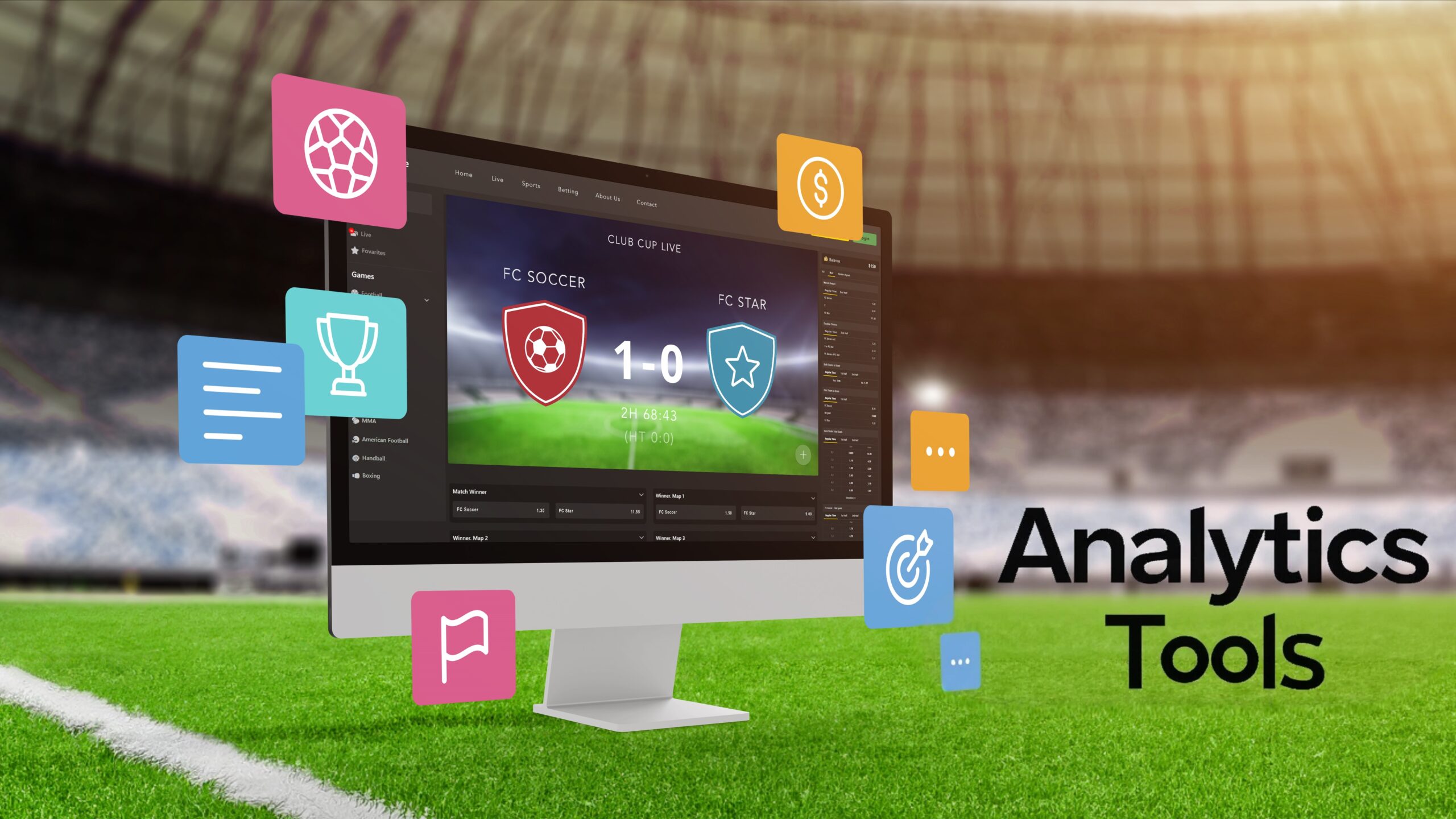Have you ever wondered how some punters consistently seem to win big in South African betting markets? It’s not just luck — increasingly, it’s about smart decision-making powered by betting analytics tools. These tools are revolutionizing the way South African punters approach betting by helping them make informed, data-driven choices instead of relying on gut feelings or hearsay. Betting in South Africa is no longer just about guessing the winner; it’s about leveraging technology and analytics to gain an edge. In this article, I’m going to take you on a deep dive into how betting analytics tools are transforming the betting landscape for South African punters — from understanding what these tools are, to exploring the various types and how to use them effectively.
What Are Betting Analytics Tools?
Before we dive deep into how betting analytics tools help punters, it’s essential to understand what these tools actually are. In simple terms, they are digital platforms or software applications designed to collect, process, and interpret large sets of data related to sports betting. These tools analyze everything from historical match data and team statistics to real-time performance trends, injury updates, and even weather forecasts. The main goal is to give punters a clearer picture of potential outcomes so they can make better-informed betting decisions instead of relying purely on instinct or luck.
At their core, betting analytics tools serve as a powerful decision-making assistant. Imagine trying to predict the outcome of a football match by only looking at a team’s last game — it’s nearly impossible to see the whole picture. These tools, however, take into account dozens, sometimes hundreds, of variables at once, compiling all that information into digestible insights. They use algorithms and, in many cases, artificial intelligence to detect patterns and trends that the average human eye might miss. The result? A more calculated and confident approach to betting.
One of the biggest advantages of using betting analytics tools is how they reduce the guesswork. In traditional betting, punters often go with their gut or rely on hearsay. But analytics tools change the game by basing decisions on solid, quantifiable evidence. This data-backed strategy is especially helpful in markets where minor details can make a major difference — like predicting how a change in weather might impact a cricket match or how an injury could affect a rugby team’s overall performance. The tools don’t guarantee wins, of course, but they do improve your chances of making smarter bets.
Think of these tools like a GPS for your betting journey. Just as a GPS doesn’t drive the car for you but gives you the fastest and safest route, betting analytics tools don’t place bets for you — they guide your strategy with data-driven insights. They allow South African punters to avoid common pitfalls, spot hidden value in the odds, and ultimately become more consistent over the long run. Whether you’re a casual weekend bettor or a more serious investor in sports betting, these tools can be the difference between random wagers and a structured, methodical betting approach.
Why South African Punters Are Turning to Analytics
| Reason | Problem Faced | How Analytics Helps | Benefit to the Punter | Example in Action |
| Information Overload | Too many games, stats, and variables to process manually | Aggregates and filters only the most relevant data | Reduces confusion, improves clarity | A PSL punter sees team form, player injuries, and H2H stats in one clean dashboard |
| Increasing Competition | Everyone is trying to outsmart the bookmaker | Provides predictive insights, trend analysis, and betting signals | Levels the playing field, gives sharper edge | In rugby markets, a punter uses analytics to spot underdog value not seen by others |
| Risk & Bankroll Issues | Random or emotional betting leads to losses | Offers calculated staking strategies and risk profiling | Improves money management and betting discipline | A cricket bettor avoids chasing losses by following a fixed percentage staking plan |
| Limited Time to Research | Manual analysis is time-consuming and often incomplete | Provides condensed summaries and auto-generated betting tips | Saves hours of research, increases efficiency | A bettor working full-time uses an app that sends ready-to-bet suggestions by 4 PM |
| Need for Consistency | Inconsistent results from gut-based betting | Data-backed decisions increase long-term performance stability | Enhances profitability and reduces volatility | Over a month, a punter’s ROI improves due to structured, analytics-based betting |
Popular Types of Betting Analytics Tools
Now, what kinds of tools are we talking about when we mention betting analytics? In today’s high-tech betting environment, South African punters have access to a wide range of digital resources that help refine their strategies and sharpen their decision-making. These tools come in different forms, each serving a unique purpose in the betting journey — from understanding statistics to managing money. Let’s explore the most popular types of betting analytics tools in a detailed list.
- Statistical Analysis Platforms
These are the backbone of data-driven betting. They specialize in offering historical data, trends, and performance stats for teams, players, leagues, and entire tournaments. With these platforms, punters can dig deep into form guides, head-to-head records, goal-scoring averages, and more. Most platforms also provide visual aids like heat maps, graphs, and charts that make the data easy to digest. - Odds Comparison Tools
Finding the best possible odds across different sportsbooks can make a huge difference in long-term profitability. Odds comparison tools scan multiple betting platforms in real time to identify which bookmaker offers the most competitive odds for a specific market or event. Even a small difference in odds can yield a significantly higher return over time, especially for regular bettors who wager frequently. - Predictive Modelling Software
These tools take things up a notch by forecasting likely outcomes using algorithms, artificial intelligence, or advanced statistical models. Instead of just showing you stats, they make educated predictions based on historical and real-time inputs. Some platforms offer probability percentages for win, loss, or draw outcomes — which can help punters identify bets with value. While they’re not foolproof, they provide a useful edge when used wisely. - Live Data and In-Play Analytics
For punters who prefer live or in-play betting, this category of tools is essential. They deliver real-time updates on key game stats like possession, shots on target, fouls, corner kicks, and substitutions. Many also track momentum swings or offer visual play-by-play timelines, which allow punters to respond quickly and place bets based on current game dynamics rather than pre-match assumptions. - Bankroll Management Applications
Good analytics isn’t just about picking winners — it’s also about managing your budget. Bankroll management tools help punters keep track of their betting history, calculate win/loss ratios, and suggest how much to stake based on risk tolerance. They often include features like loss-limits, profit targets, and automated staking plans (flat betting, percentage staking, or progressive systems), making them a must-have for responsible gambling.
How Betting Analytics Tools Work in South African Sports
South Africa’s sporting landscape is incredibly diverse and deeply rooted in national pride, with sports like soccer, rugby, and cricket dominating both viewership and betting activity. Each sport brings its own style, tempo, and statistical complexities, which means betting analytics tools must be tailored to fit the unique demands of each discipline. These tools are not one-size-fits-all — they adapt their focus depending on the sport, analyzing specific metrics and contextual elements that influence match outcomes. For South African punters, this sport-specific precision is what makes these tools genuinely valuable.
In soccer, particularly within the Premier Soccer League (PSL), analytics tools dig deep into team tactics, individual player form, and seasonal trends. South African soccer often has unpredictable outcomes, and these tools help stabilize that uncertainty. They track data like goal-scoring frequency, defensive resilience, passing accuracy, injury reports, and even how a team performs when playing at home — a factor that tends to have an outsized impact in local leagues. Punters can use this information to identify mismatches or inconsistencies between a team’s perceived strength and actual performance.
Rugby analytics are a bit more intricate due to the sport’s physicality and tactical variety. Tools in this area collect data on try conversions, possession time, ruck and maul effectiveness, territory control, and the number of penalties conceded — all of which directly influence game dynamics. Metrics like player tackles, turnovers, and meters gained become crucial when evaluating individual performance. Moreover, in a country where weather varies dramatically between regions, some tools also factor in environmental conditions that affect playing style, like altitude in Johannesburg or coastal wind in Cape Town.
Cricket, perhaps the most numbers-driven of all sports, thrives on granular data. Betting analytics tools focus on batting averages, strike rates, bowling economy, and head-to-head records. They also analyze pitch reports, which are particularly influential in South African conditions — some grounds favor pace, others spin. Tools assess which batsmen struggle against specific bowling types or which teams collapse under pressure during chases. By layering these insights with historical match outcomes, punters can make precise judgments about everything from total runs to wicket predictions and individual player performance bets.
Ultimately, the effectiveness of betting analytics tools in South African sports lies in their ability to translate vast quantities of raw data into meaningful patterns and betting opportunities. Whether it’s identifying a goal-heavy fixture in the PSL, forecasting a low-scoring rugby clash due to poor weather, or predicting a dominant batting display on a flat Johannesburg pitch, the power of analytics lies in its sport-specific application. South African punters who leverage these tools aren’t just betting—they’re investing in probability, logic, and informed risk.
Step-by-Step Guide: Using Betting Analytics Tools Effectively
| Step | Description | Why It Matters | Tips for Success | Common Pitfalls to Avoid |
| Identify Your Sport and Market | Focus on one sport or market you know well rather than spreading yourself too thin across many. | Concentrating your efforts lets you build expertise and spot trends better. | Choose your favorite sport or a market with ample data available. | Jumping into multiple sports at once without understanding them. |
| Choose the Right Analytics Tool | Select a tool that fits your betting style and the market you’re targeting, such as live-data or odds comparison apps. | Using the right tool maximizes the relevance and usefulness of data you get. | Try free trials or demos before committing to paid tools. | Using general tools that don’t suit your preferred sport or bet type. |
| Understand the Metrics | Learn what different statistics mean and how they influence outcomes—like win percentages, injury impacts, or possession stats. | Knowing what to look for helps you interpret data correctly and avoid misjudgments. | Spend time with tutorials or guides related to the tool you use. | Ignoring metric context or blindly trusting numbers without understanding them. |
| Combine Data with Intuition | Use analytics to support your instincts rather than replace them entirely; consider situational factors beyond the data. | Betting is partly art, partly science—balancing both improves decisions. | Question the data if your gut suggests something different; investigate further. | Relying solely on data without considering on-the-ground realities or insider info. |
| Manage Your Bankroll Wisely | Use bankroll management tools to set staking limits and adjust bet sizes according to risk and confidence levels. | Proper money management protects your betting fund and prolongs your play. | Adopt staking plans like flat betting or percentage staking for consistency. | Chasing losses or staking too much on uncertain bets leading to rapid losses. |
Benefits of Using Betting Analytics Tools for South African Punters
Using betting analytics tools can truly transform the way South African punters approach their bets. When you start relying on data and solid insights rather than guesswork or emotions, you unlock a range of benefits that help you become a smarter, more disciplined bettor. Here’s a detailed list of the key advantages these tools offer:
- Better decision making becomes possible because analytics remove much of the guesswork. Instead of blindly picking teams or players, you can identify value bets—those wagers where the odds offered are better than the actual probability of winning. This leads to more informed and calculated bets, increasing your chances of success.
- Emotional betting, which often leads to rash decisions and chasing losses, is greatly reduced. Analytics encourage logical thinking by focusing on data and statistics rather than feelings or personal biases. This helps punters avoid common traps like betting on their favorite team regardless of form or blindly doubling stakes after a loss.
- Increased profitability is one of the most appealing benefits. By spotting profitable odds and trends early, analytics tools can help punters consistently make bets that offer better returns in the long run. Instead of random wins and losses, you start to see a more stable pattern of earnings as you make smarter choices.
- Time efficiency is a major plus for many bettors who don’t have hours to research every game or event. These tools condense vast amounts of information into easy-to-understand insights, meaning you can quickly filter out irrelevant data and focus only on what matters most. This saves time and allows you to place bets faster and with more confidence.
- Adaptability is another crucial benefit. Betting markets and conditions change constantly—teams get injured, weather affects gameplay, and odds fluctuate. Analytics tools provide real-time feedback and allow you to adjust your strategies dynamically. This flexibility helps you stay ahead of the curve and respond to changing situations more effectively.
- Greater confidence in your bets comes naturally when you rely on data rather than guesswork. Knowing that your decisions are supported by facts and trends helps reduce anxiety and second-guessing, making betting a more enjoyable and less stressful experience.
- Improved bankroll management often accompanies the use of analytics tools. Many of these platforms come with features that help you track your bets, set limits, and manage risk, preventing you from betting beyond your means and encouraging sustainable betting habits.
- Ability to uncover niche opportunities and hidden value in less obvious markets. Analytics tools can analyze hundreds of leagues and player stats, revealing profitable bets that casual punters might overlook, especially in lesser-known South African or international competitions.
- Enhanced learning curve for new punters. By interacting with analytics tools and interpreting data, beginners can quickly grasp the nuances of sports betting and develop critical thinking skills that elevate their betting approach over time.
- Access to community insights and expert analysis. Many analytics platforms integrate social features or expert commentary, allowing punters to compare their findings, learn from others, and stay updated with the latest trends and strategies.




